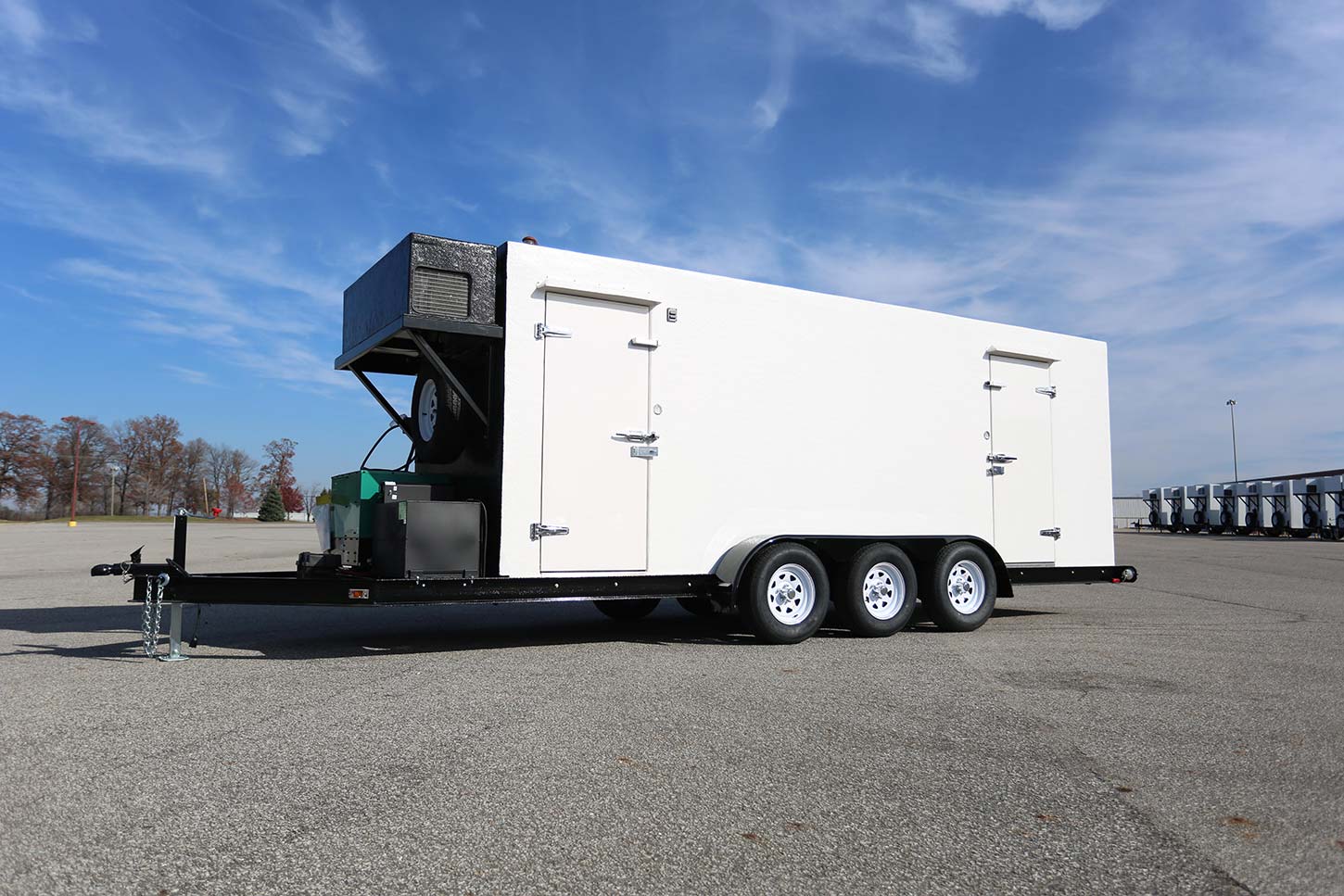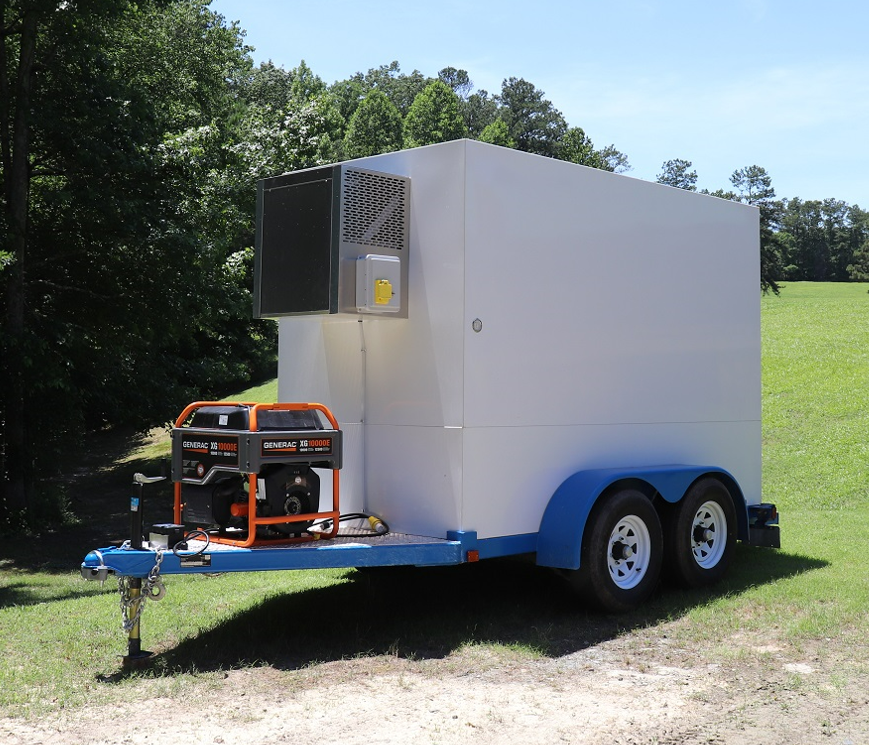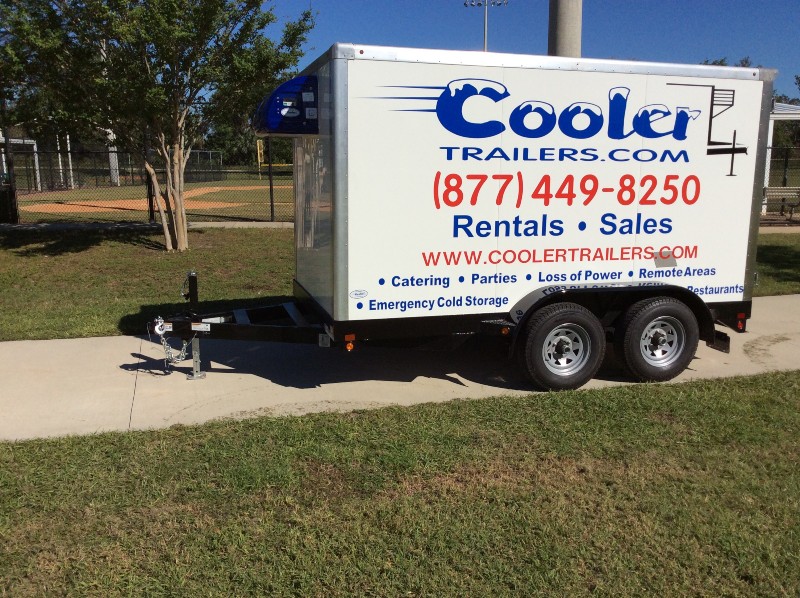Explore the Advantages of Small Refrigerated Trailer-Cooler Trailers
Necessary Aspects to Consider When Choosing Refrigerated Trailers
Selecting the right cooled trailer for your business is a vital choice that requires cautious consideration of different elements. From making sure the trailer's dimension and capability match your transport needs to reviewing the temperature control choices that will keep your products in optimum condition, each element plays an important role in the performance and effectiveness of your procedures.
Dimension and Capability Factors To Consider
When choosing chilled trailers, figuring out the appropriate size and ability is critical to make certain economical and reliable transportation of subject to spoiling goods. The size of the trailer need to align with the amount of goods being transported to make the most of area utilization and minimize the threat of temperature inconsistencies. An undersized trailer may bring about congestion, influencing airflow and temperature circulation, possibly leading to putridity. Conversely, a large trailer for a smaller sized lots might raise running expenses as a result of unnecessary power usage to maintain the needed temperature level.
Capability considerations are equally critical. It is important to match the trailer's ability with the quantity of products to be delivered. Overwhelming a refrigerated trailer can strain the air conditioning system, bring about temperature level changes and jeopardizing the high quality of the products. On the other hand, underutilizing the trailer's ability might lead to ineffective usage of resources and higher transport expenses per unit of products. Consequently, meticulously analyzing both the dimension and capacity needs before selecting a chilled trailer is crucial for making sure the integrity and quality of perishable products throughout transit.
Temperature Level Control Options
Efficient transportation of subject to spoiling items in cooled trailers relies dramatically on choosing ideal temperature control choices that flawlessly integrate with the size and capability considerations previously discussed. The temperature control choices play a crucial duty in ensuring that the products continue to be at the required temperature throughout the transportation process. There are different temperature level control alternatives readily available for refrigerated trailers, including mechanical systems, diesel-powered systems, and electric systems. Mechanical systems use a compressor to manage the temperature level inside the trailer, while diesel-powered systems supply a trustworthy alternative for long-distance transport. Electric systems, on the other hand, are more eco-friendly and affordable over time. When selecting a temperature control option, it is important to think about aspects such as the kind of products being delivered, the range of the trip, and the accessibility of power sources. By selecting one of the most appropriate temperature control option, companies can guarantee the efficient and safe transport of subject to spoiling goods in refrigerated trailers.
Upkeep and Solution Needs
Appropriate upkeep and timely maintenance are extremely important factors to consider for guaranteeing the optimum performance and long life of refrigerated trailers - small refrigerated trailer- cooler trailers. Regular upkeep is important to stop break downs, maintain temperature level consistency, and support food security standards throughout transport. It is important to follow the producer's standards for servicing periods and recommended procedures to keep the refrigeration system running successfully
When choosing a chilled trailer, it is try this website critical to ask about the upkeep history and any kind of service records offered. Recognizing the upkeep routine and previous servicing can provide understanding into how well the trailer has been looked after and whether there have actually been any kind of reoccuring issues that might influence its dependability.

Energy Efficiency Features
Offered the critical role maintenance plays in guaranteeing the ideal performance of chilled trailers, it is vital to consider the energy performance attributes of these trailers to better enhance their functional efficiency. Power efficiency features are crucial in reducing operating costs and environmental impact. When picking a chilled trailer, try to find models with advanced insulation materials that decrease warmth transfer and minimize energy intake. Furthermore, trailers geared up with reliable air conditioning systems, such as wise temperature controls and variable-speed compressors, can assist control temperatures better while taking in much less power. LED illumination, which is much more energy-efficient than conventional lights, is another attribute to consider. Effectively sealed doors and insulated flooring likewise add to keeping inner temperatures successfully, lowering the workload on the refrigeration system. By focusing on energy effectiveness functions in refrigerated trailers, businesses can not Clicking Here only save money on functional prices however also add to sustainability efforts by reducing energy intake and greenhouse gas discharges.
Expense and Spending Plan Analysis
When evaluating cooled trailers, carrying out a detailed expense and budget plan analysis is essential to make certain monetary sustainability and operational efficiency. The first acquisition cost of a refrigerated trailer is simply one aspect of the overall price.
Budget plan analysis entails not only the procurement expense but also the prospective roi. Consider aspects like energy performance, payload ability, and technical features that can influence functional expenses. While opting for a cheaper design may appear cost-effective originally, it is essential to weigh the long-lasting savings that an extra efficient and sturdy cooled trailer can supply.
Furthermore, spending plan analysis must likewise make up any extra expenses such as personalization, regulatory conformity, and training for employees (small refrigerated trailer- cooler trailers). By carrying out a thorough cost and spending plan evaluation, businesses can make educated decisions that straighten with their functional needs and financial goals

Final Thought
Finally, it is vital to thoroughly think about variables such as size and capability, temperature level control options, upkeep and solution needs, energy Check Out Your URL effectiveness attributes, and cost and budget plan evaluation when choosing refrigerated trailers. By taking these elements right into account, organizations can guarantee they choose the most appropriate choice to meet their certain demands and needs. It is essential to prioritize capability and efficiency to optimize the performance of refrigerated trailer operations.

Effective transport of subject to spoiling items in chilled trailers counts significantly on selecting proper temperature level control alternatives that seamlessly incorporate with the dimension and ability factors to consider previously gone over. There are different temperature control options available for refrigerated trailers, consisting of mechanical systems, diesel-powered systems, and electric systems. By selecting the most suitable temperature control alternative, organizations can make certain the risk-free and effective transport of subject to spoiling items in cooled trailers.
Given the crucial role upkeep plays in making sure the ideal performance of chilled trailers, it is important to consider the power effectiveness functions of these trailers to further boost their operational performance.In final thought, it is important to carefully take into consideration aspects such as size and capability, temperature level control options, maintenance and service demands, energy efficiency features, and expense and budget evaluation when choosing cooled trailers.